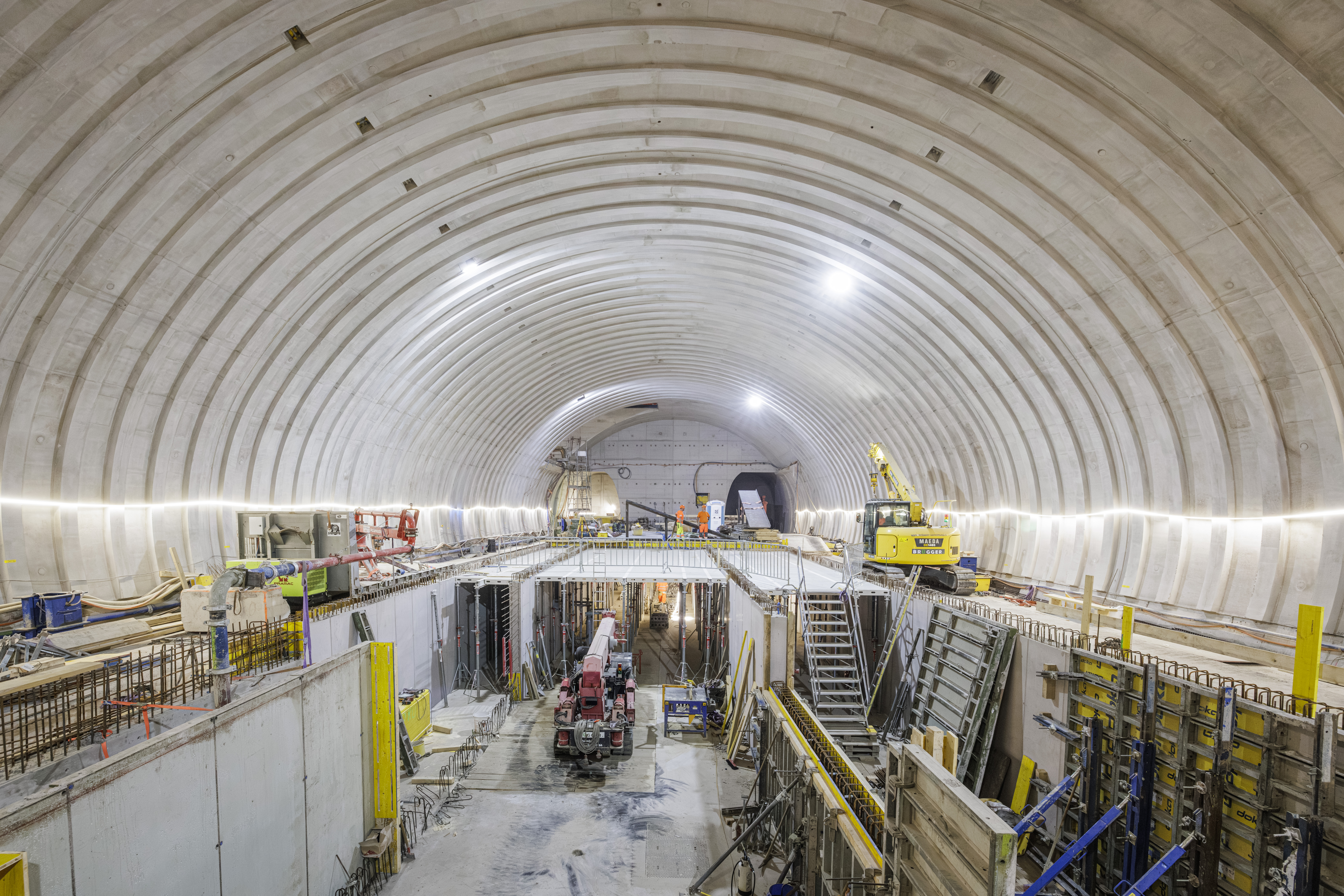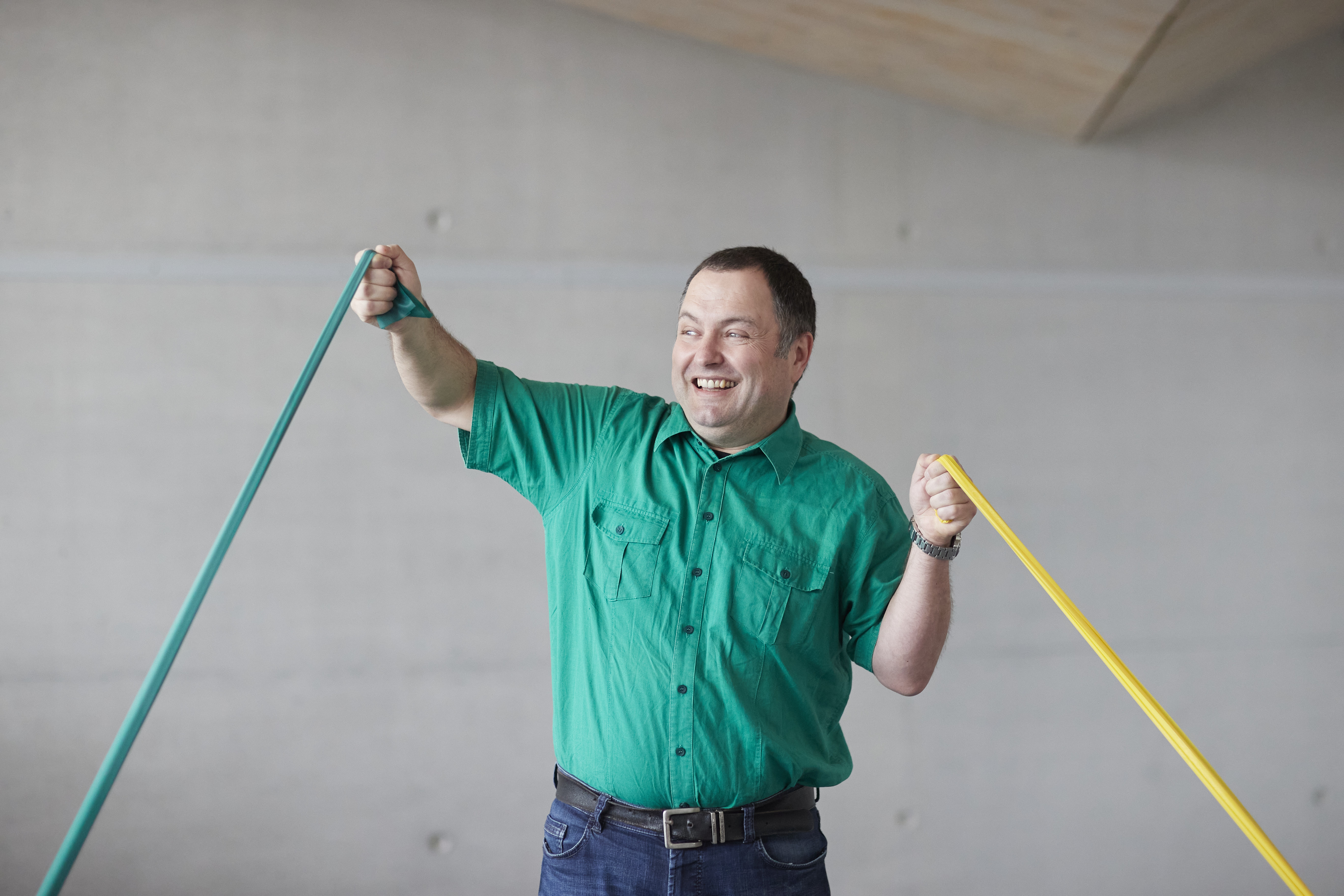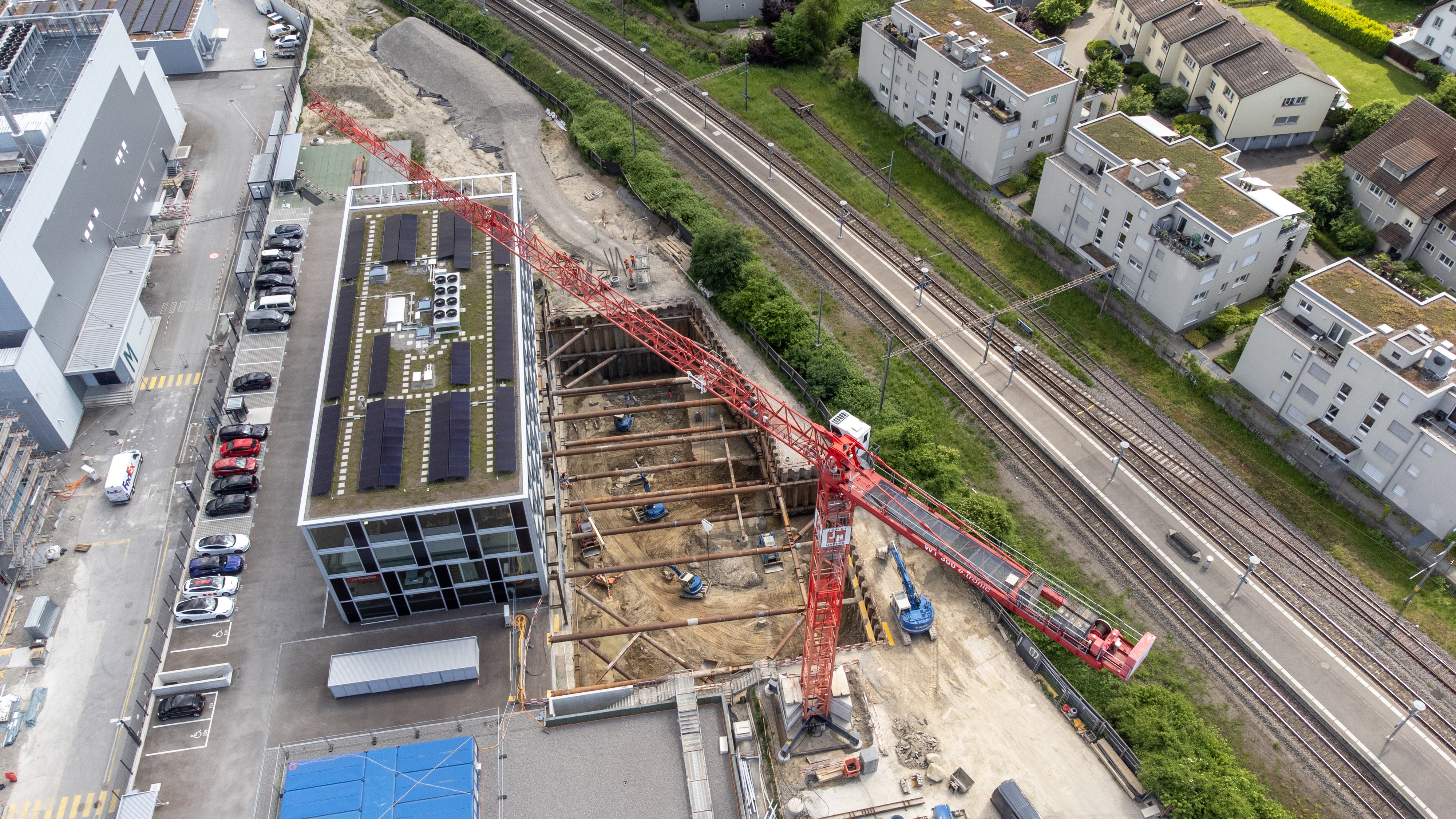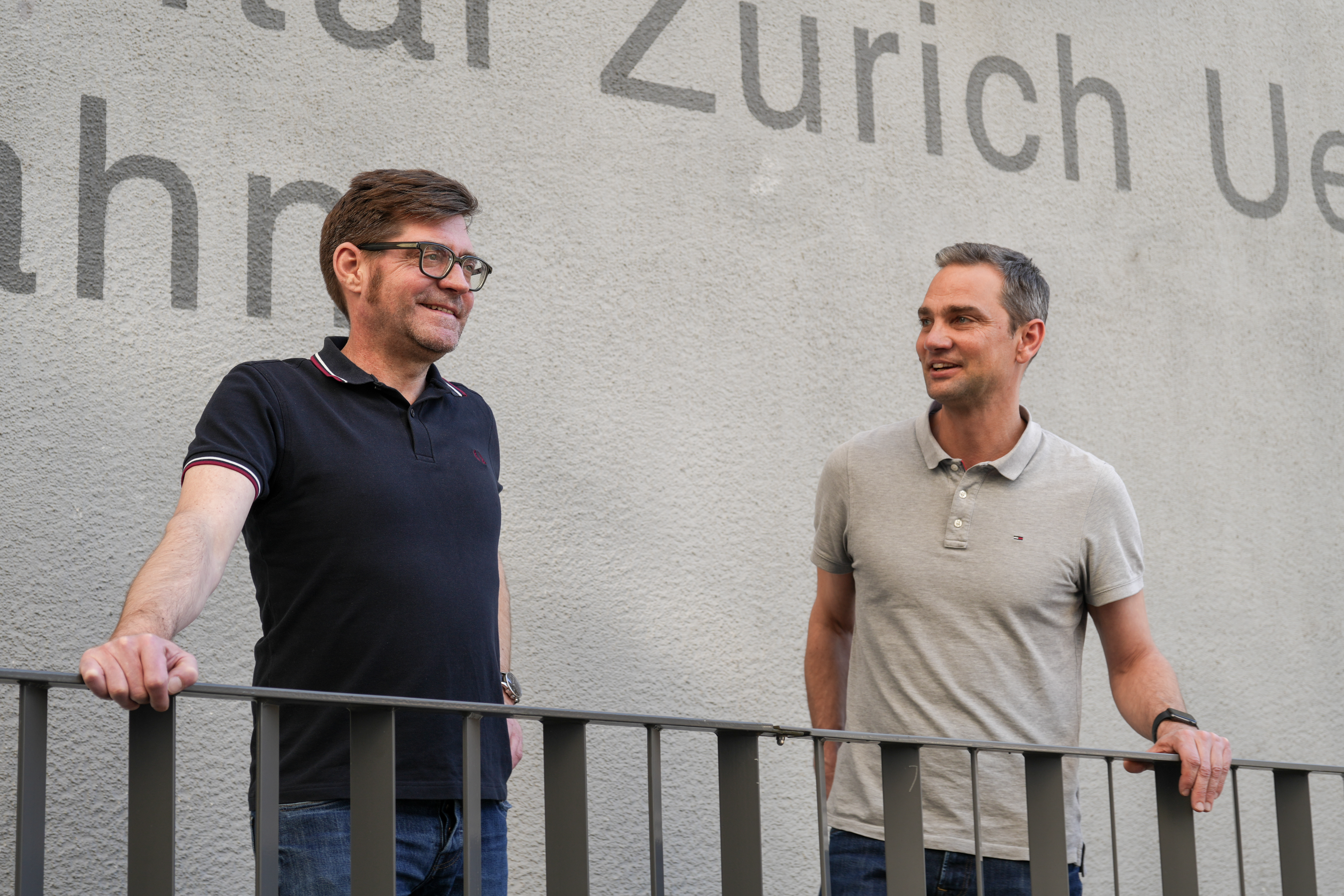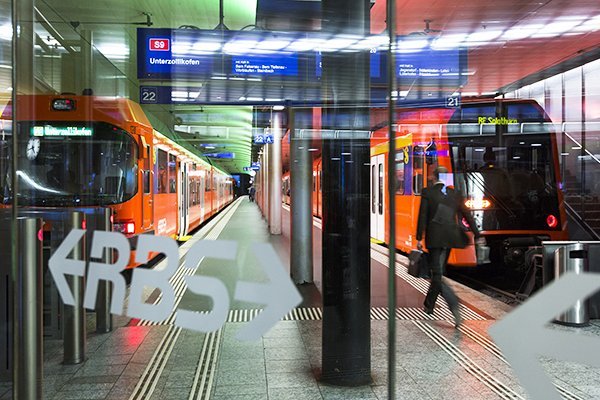With helmet and tablet: young site supervisors on the RBS construction site in Bern

How does it feel to coordinate the construction of a project as a young site supervisor or young civil engineer on a large construction site? We asked Ismael Röthlisberger (32 years old) and Prijanthy Panchadcharam (29 years old). Both are involved in the "Bern RBS railway station extension" project, where they are assisting Basler & Hofmann with the construction of two large caverns for the new underground RBS railway station.
Just a few meters below the rolling SBB trains at Bern's main station, a structure of almost cathedral-like dimensions is currently being built: two huge caverns 26 meters wide and 17 meters high. Regionalverkehr Bern-Solothurn (RBS) is having a new underground station with four tracks built. Trains are due to run in it from the end of 2029. As a member of the "RBS connects" planning consortium, Basler & Hofmann is the chief construction manager and is ensuring that the quality, deadlines and costs of the major project are right.
Ismael Röthlisberger is one of seven site supervisors on the major construction site. As site supervisor, he leads and coordinates the structural works of the new underground station as part of a team. Prijanthy Panchadcharam (29 years old) supports site supervision and takes on initial construction management tasks. As a project engineer, she planned parts of the caverns herself; now she is supervising their implementation on the construction site.
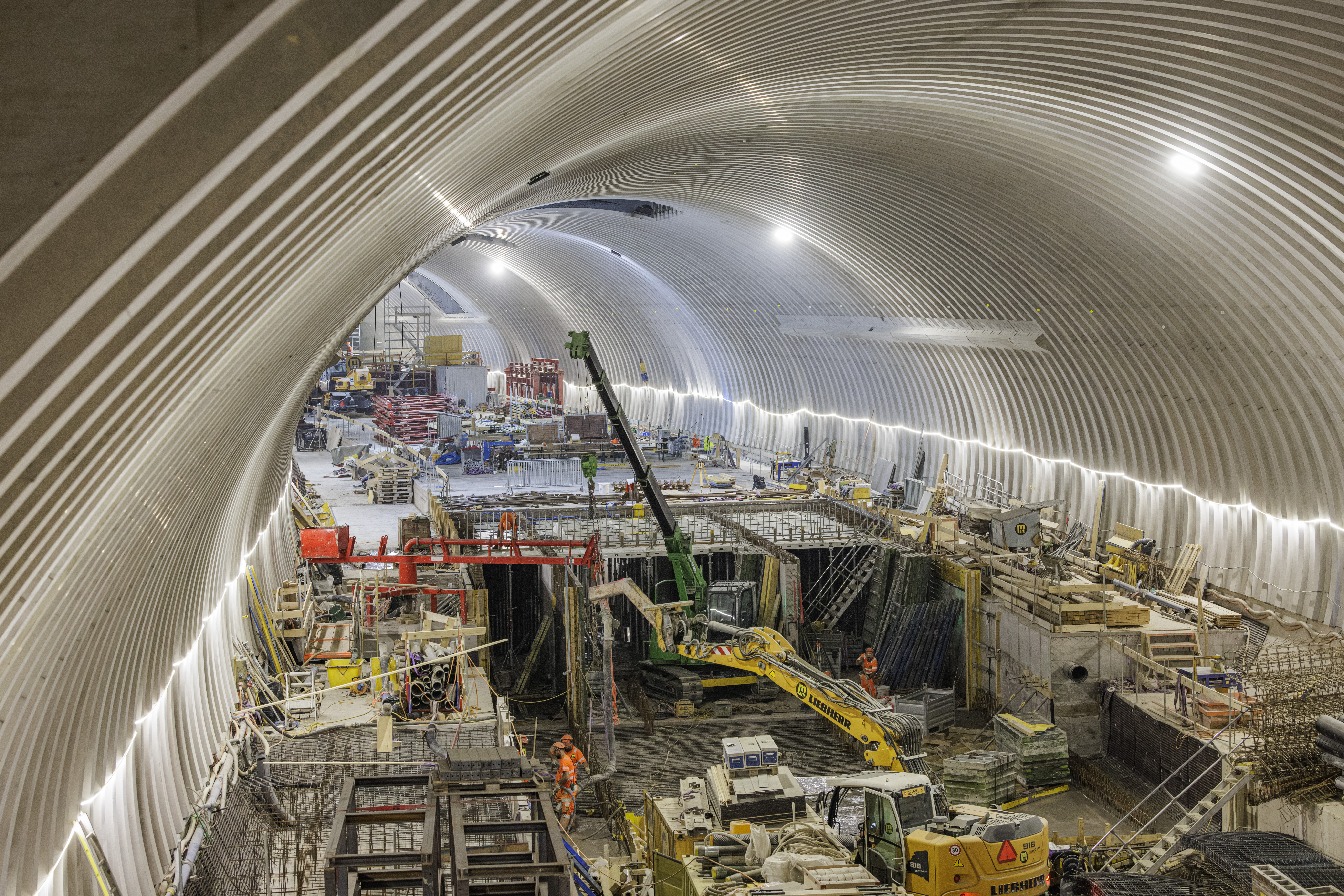
Ismael and Prijanthy: What is the most common thing you do on the construction site?
Ismael: It's reaching for my cell phone. I'm on the RBS construction site one to three times a day, checking the quality of the work carried out and documenting the construction progress. I use my cell phone to do this and take 20 to 50 photos a day. In the two years I've been working as a site supervisor in Bern, I've taken around 15,000 photos. The photos serve as a backup in case there are any discussions about how a job was constructed. The client receives a weekly report from us on the progress of the construction work. Some photos are also included in the final report that we produce at the end of the project for quality documentation purposes.
Prijanthy: I support the site supervision in quality control and occasionally carry out reinforcement checks. In other words, I check whether the reinforcing bars have been laid as specified in the construction plans. I have the plans with me digitally on my tablet when I go down into the caverns. I also take photos and then, back in the office, I create a reinforcement log. In it, I also record what needs to be improved and checked again later.
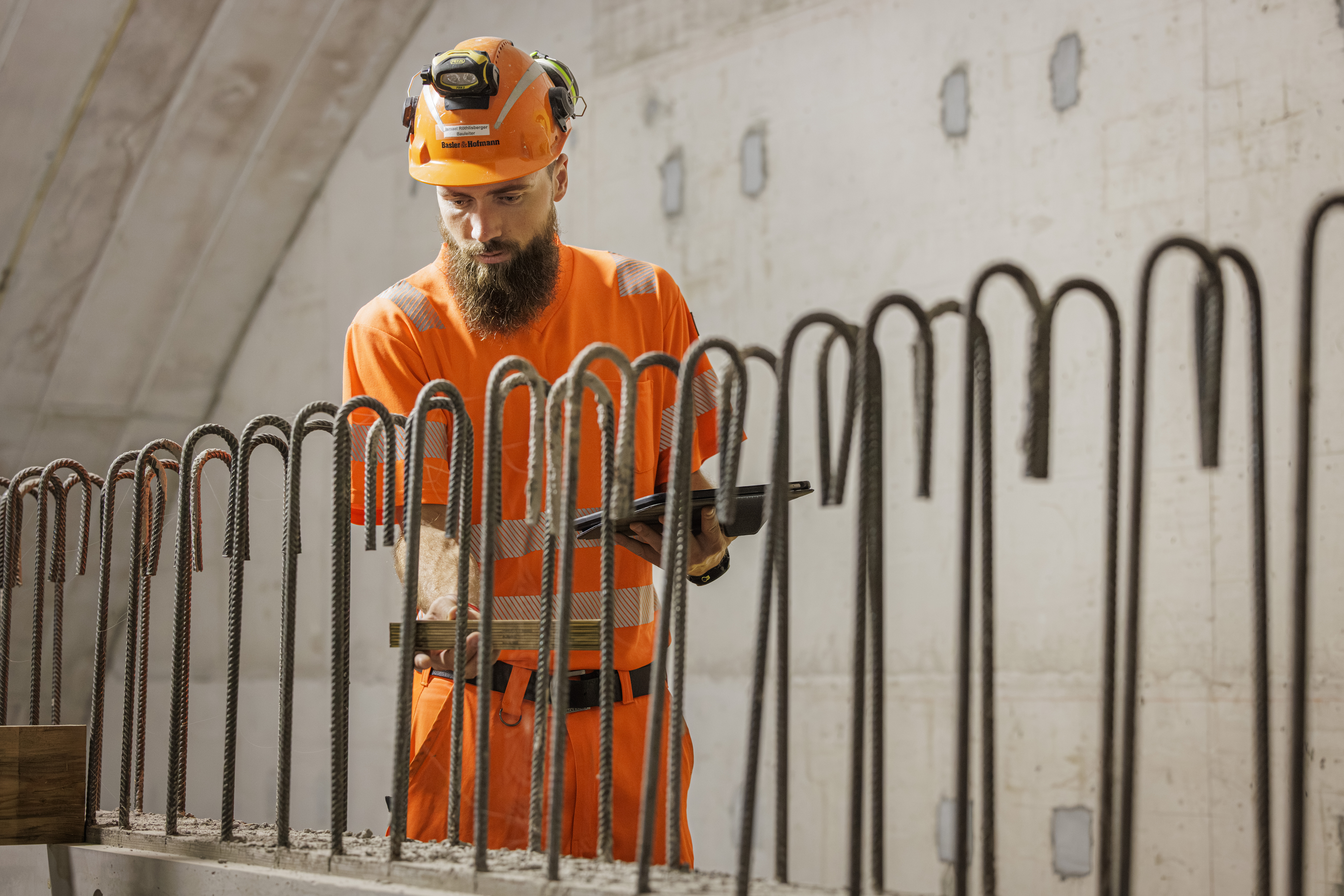
Ismael, what other tasks do you have as a site supervisor?
Ismael: As site supervisors, we are responsible for coordinating, organizing and monitoring the construction of a project on behalf of the client. We ensure that the concept design is implemented to the agreed quality, on time and within budget. We carry out quality control, check compliance with contracts and safety regulations, are responsible for cost control and supplementary claims management - the latter means that we check subsequent claims by construction companies for services that are not contractually agreed. Another task is to coordinate the work between the client, construction companies and planning experts.
Prijanthy, you are a project engineer, but you also take on initial construction management tasks. How do the activities differ?
Prijanthy: As a project engineer, I plan and calculate the structure and draw up the plans together with the draughtsmen. I make sure that the structure is structurally safe, serviceable and durable. This is planning work in the office. As a site manager, I work outside on the construction site and monitor the implementation.
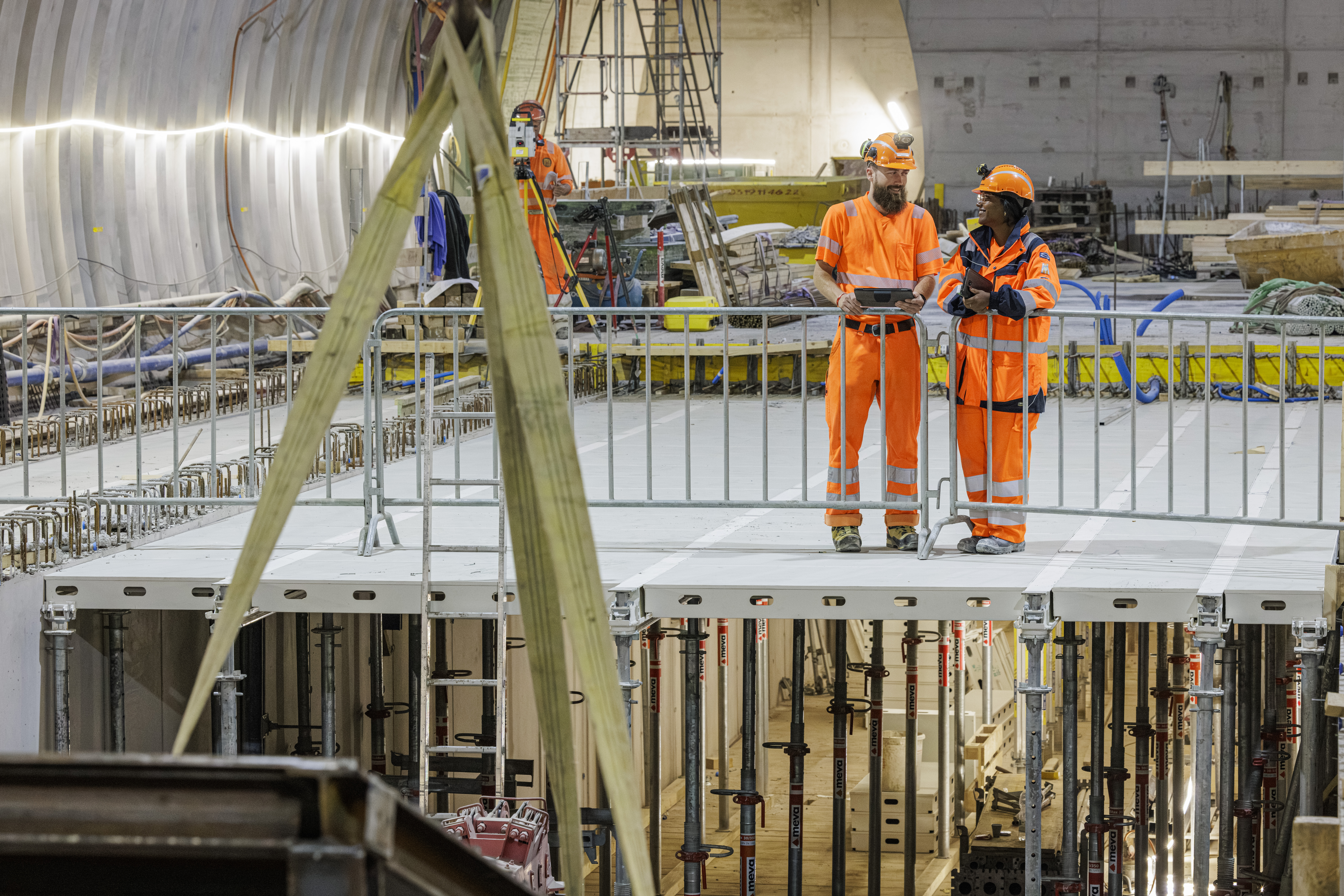
How did you come to work as a site supervisor and prospective site supervisor?
Ismael: After graduating from high school, I first did an apprenticeship as an EFZ bricklayer. I then went on to study civil engineering at ETH Zurich. Between my Bachelor's and Master's degree, I was able to do an internship at Basler & Hofmann - here on the RBS construction site in Bern as a site supervisor. The internship led me to tunnelling and I realized how fascinating it is: building a hole in a mountain or underground and making sure it holds! After graduating, I joined Basler & Hofmann directly as a site supervisor, again on the RBS construction site.
Prijanthy: I was strong in math at grammar school. I decided to study civil engineering after a visit by students from the ETH to our grammar school. I also did an internship at Basler & Hofmann and learned about tunnel and bridge construction. From home, unfortunately, as my internship coincided with the coronavirus pandemic.
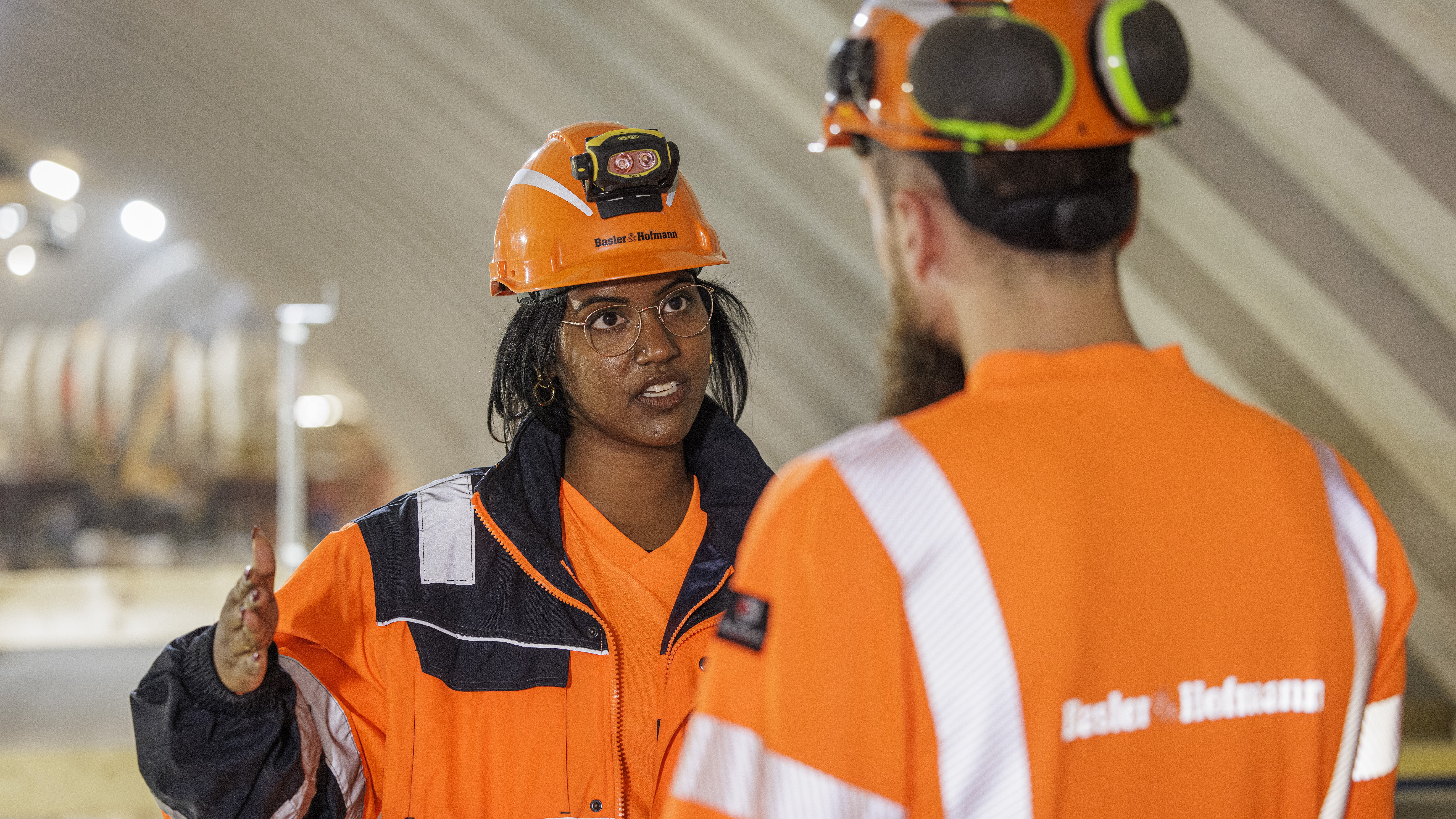
What was the first day on the construction site like for you - out of your comfort zone and into the underground?
Prijanthy : When I had to go to the construction site alone for the first time to check the reinforcement, I had a queasy feeling. I asked myself: How seriously will the construction experts take me as a young woman? I was so nervous that I almost forgot to take inspection photos. But everyone greeted me in a friendly manner and it felt good. Today, walking around the construction site is routine for me.
Ismael: On my first day on the RBS construction site during my internship, I thought to myself: Cool, finally back on a construction site! Starting as a site supervisor two years later felt a bit overwhelming. It's like jumping in at the deep end when you're new to site supervision and have responsibility. But the team helped me get started. I was well accepted on the construction site.
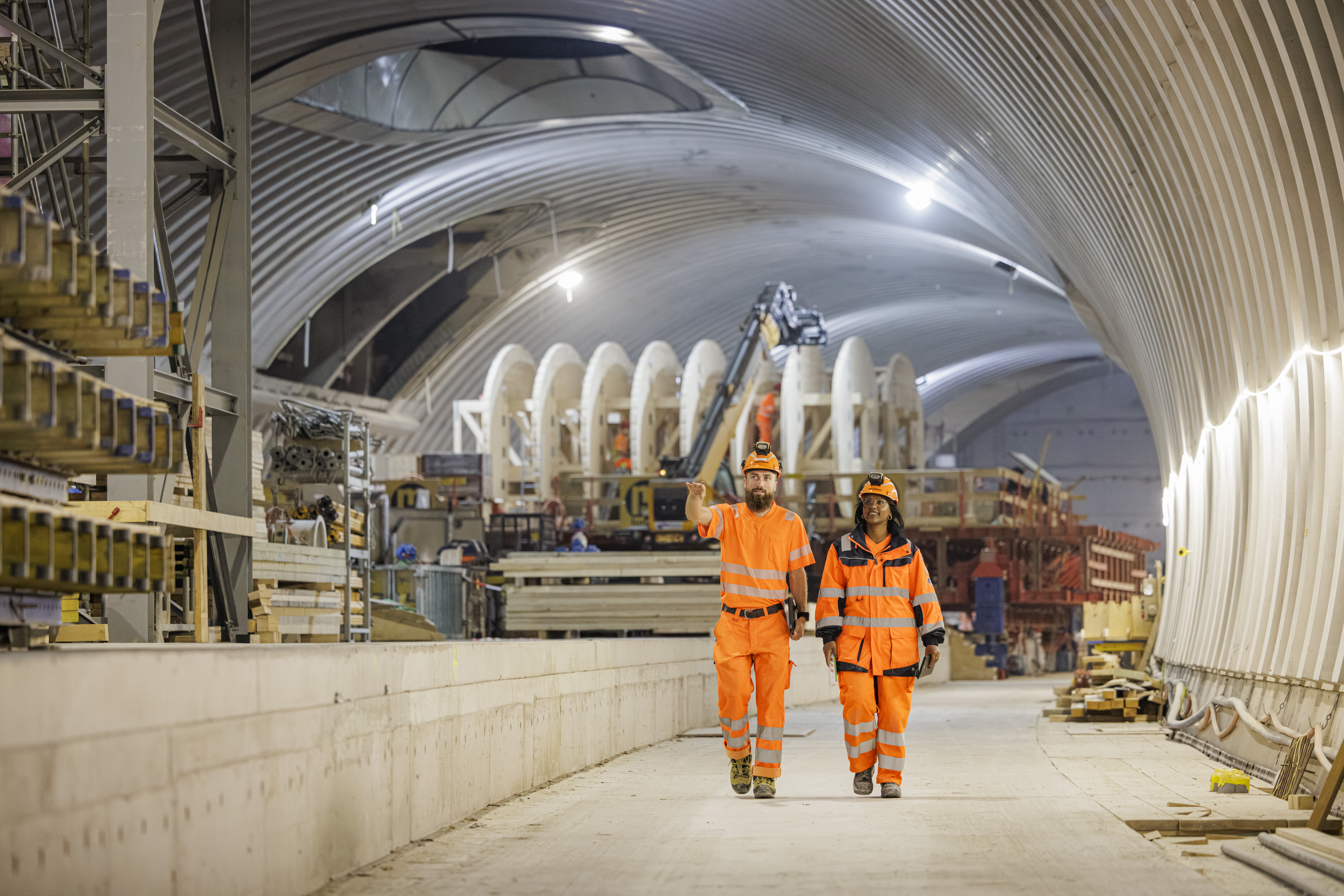
What did you learn on the job rather than during your studies?
Ismael: You only learn all of the construction processes, scheduling and cost control, monitoring implementation and checking for any subsequent work on the job. But above all: negotiating with construction companies, for example about unforeseen services and their remuneration. Every day on the construction site, it's all about finding solutions together and having good discussions with site managers, foremen, miners and a wide variety of specialists. Negotiating is challenging, but also exciting and varied.
Prijanthy : As a project engineer, you also learn a lot on the job, such as how to draw up specifications for invitations to tender and how to check offers.
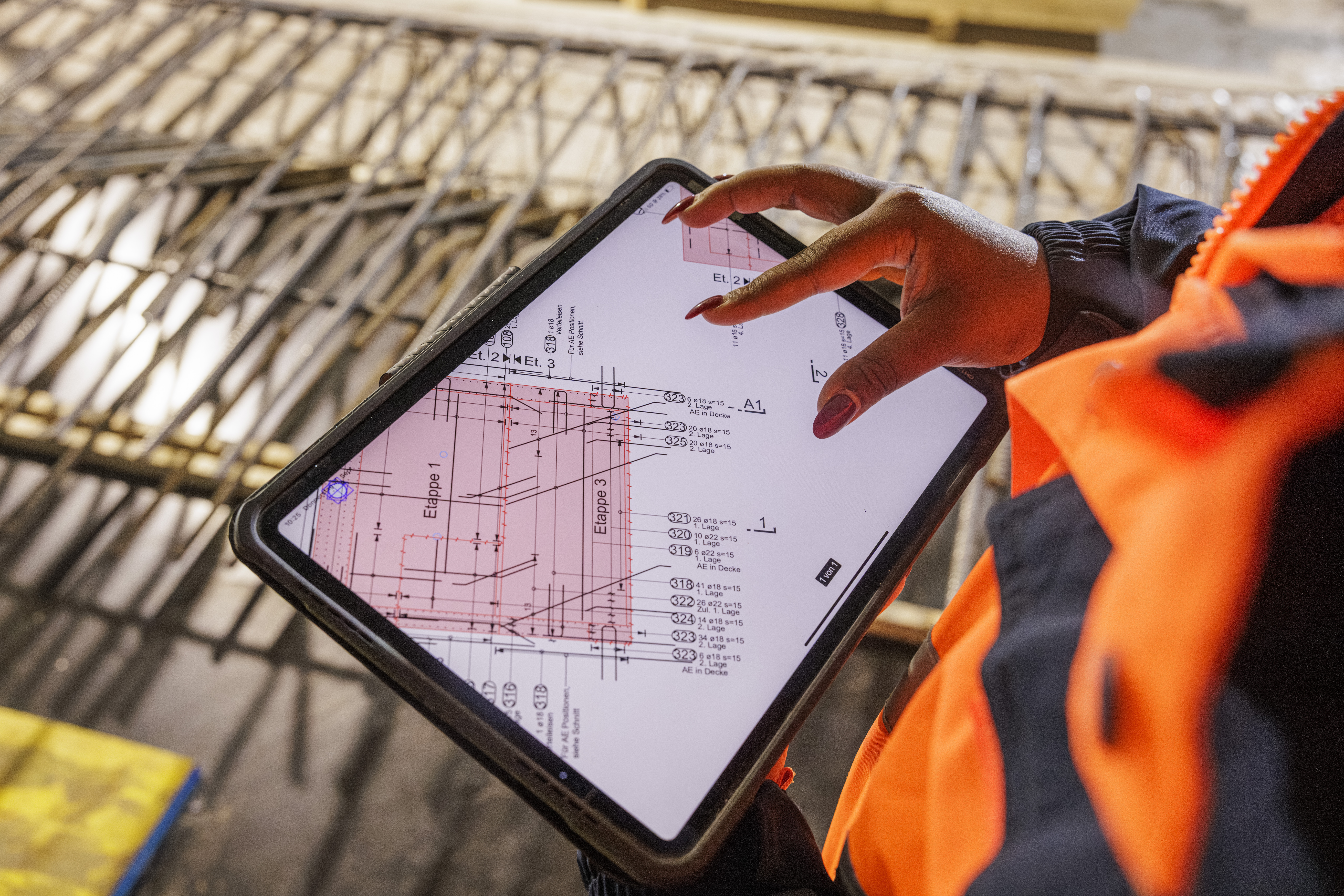
What skills should a site supervisor have?
Prijanthy : A degree in civil engineering is a good foundation, where you acquire the theoretical knowledge. In terms of personality, you should be open and rather extroverted, seek out conversation and be able to create a good atmosphere. Resistance to stress also helps, and you can't be a pure office worker. Site supervision is a great profession if you want to combine theory and practice.
Ismael : A site supervisor must not be afraid of conflict and should be communicative and solution-oriented. Empathy is helpful in order to understand the concerns of the construction team and management. Good cooperation is only possible if you understand each other well on the construction site.
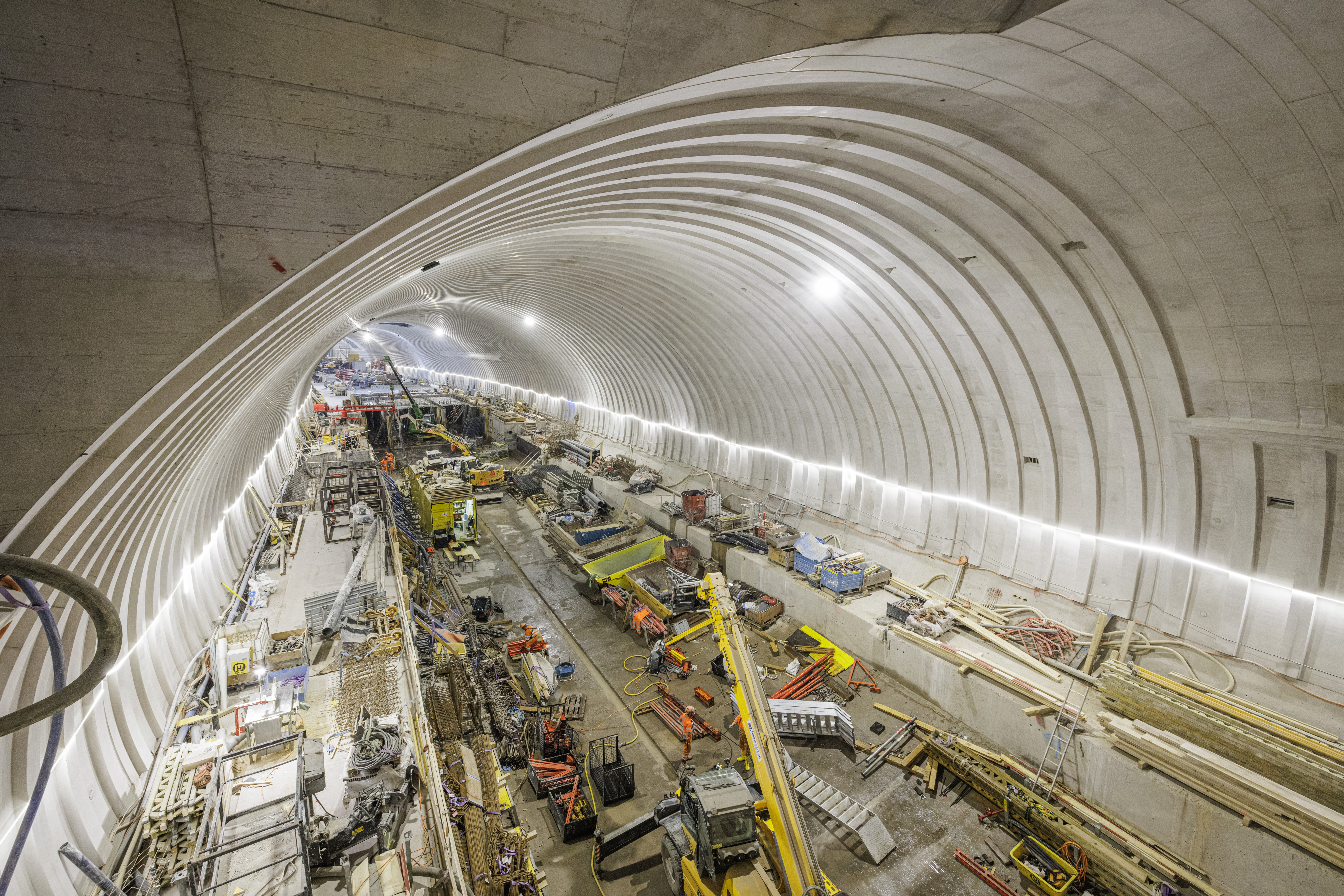
What other profession could you imagine?
Ismael: None, really. I'm happy as a site supervisor. The job also gives me enough freedom for my hobby, sport. I do ultra trail running. The working hours and substitutions are flexible enough for me to be able to train and, for example, take part in the SwissPeaks 380, an ultra trail run over 380 kilometers in the Valais mountains.
Prijanthy: Site manager is a cool job. But I could also imagine working as a math teacher because I like working with young people. Calculations are simply fun: you can often solve a problem with a simple calculation. That's why I also like my job as a civil engineer: for example, I calculated and planned the reinforcements for both caverns; now I check that they are implemented correctly on the construction site. When planning, you dimension the components and determine how large and thick an element needs to be, for example. You also make sure that not too much material is used, thus ensuring sustainable buildings.
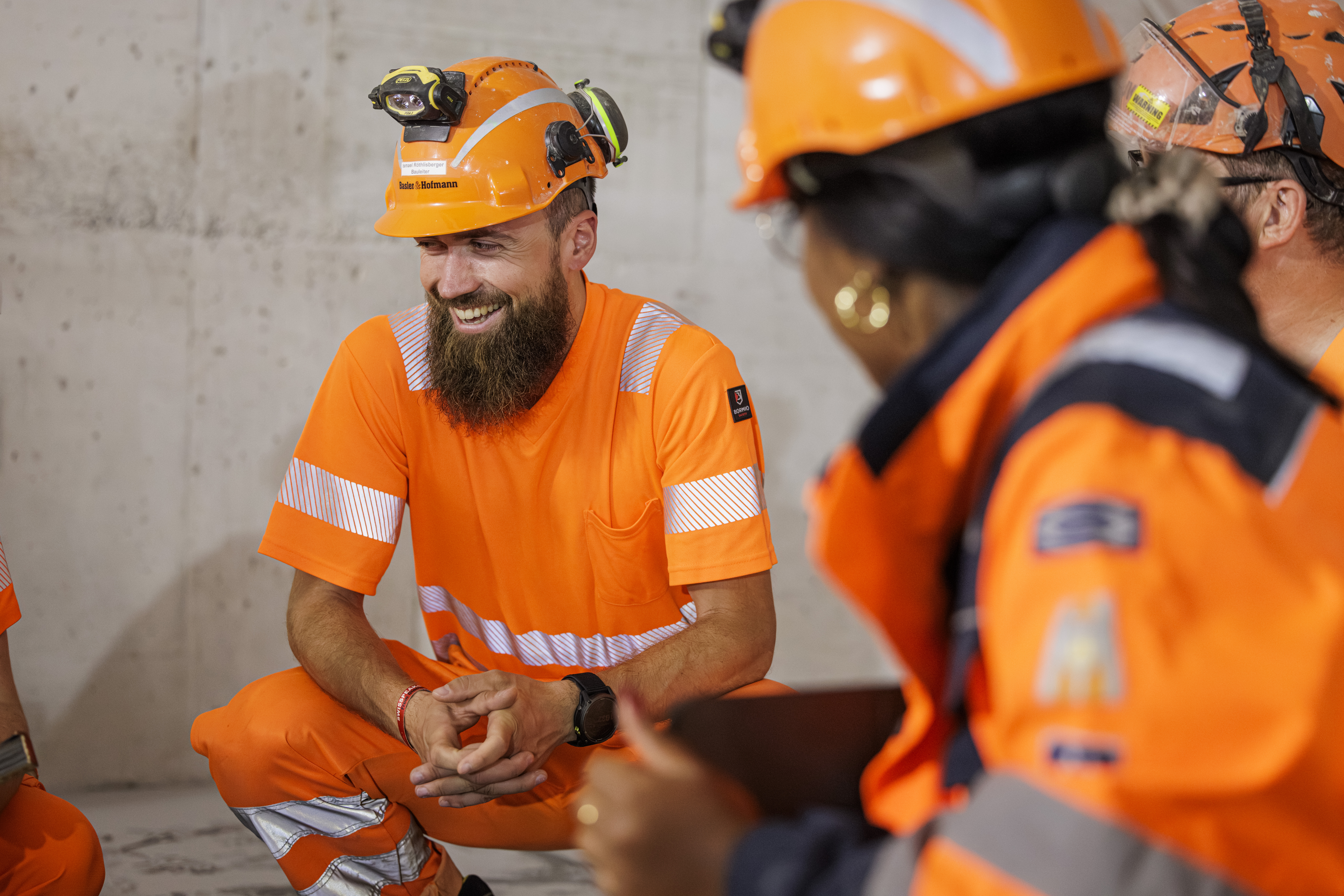
What was a highlight for you on the RBS construction site?
Ismael : A highlight for me was the 2024 open construction site day, when we were able to show the public our work on the "Bern RBS station expansion". There was a huge amount of interest and people were very impressed by what we were building here in the caverns just a few meters below the SBB tracks.
Prijanthy: I have particularly fond memories of the breakthrough celebration in June 2023, when we planners and construction companies celebrated the breakthrough between the station cavern and the first entrance tunnel.
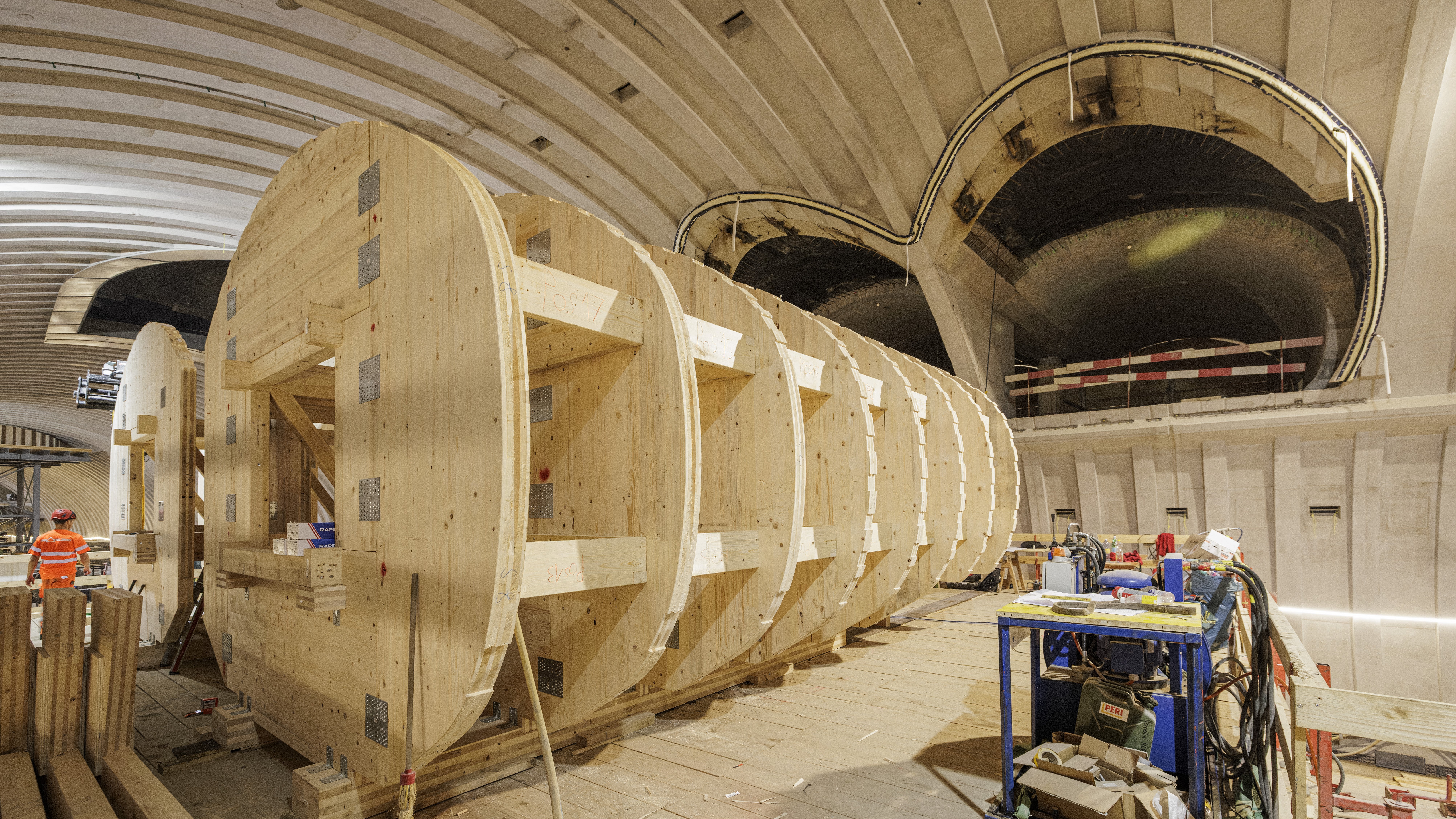
What else are you looking forward to?
Prijanthy: The day when the new RBS railway station goes into operation. Everyone will see how big the caverns are - and how beautiful.
Ismael : I'm looking forward to the completion of the structural works. The structural works for the first caverns should be completed in spring 2026, after five years of work. The second cavern is expected to follow in August 2026, after which the expansion will begin with the railroad systems, electrics, escalators and more.
